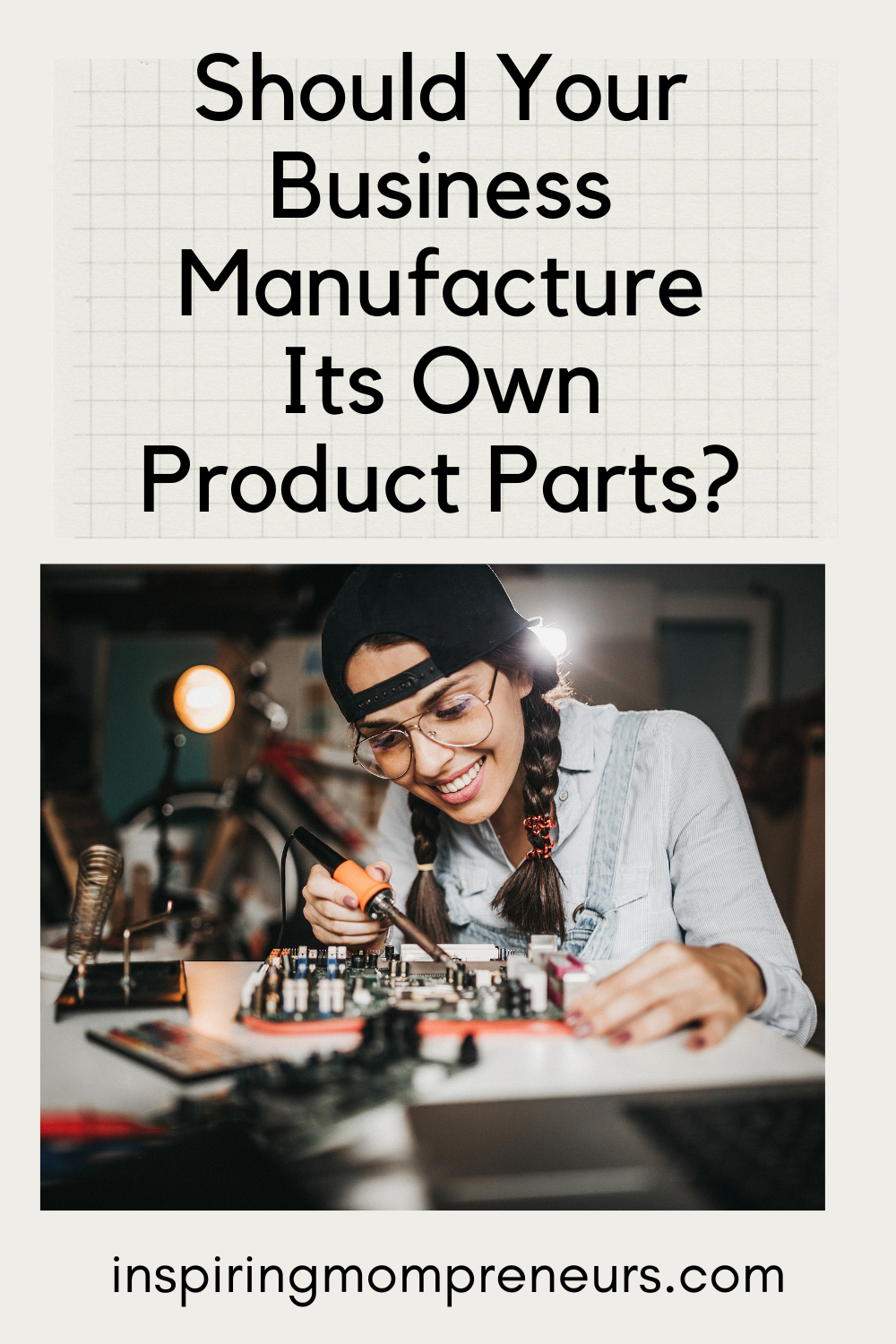In this post, we examine a few pros and cons to help entrepreneurs answer the question, “Should Your Business Manufacture Its Own Product Parts?”
If you are creating a product, you will need lots of different parts to put it all together.
Most of the time, companies will outsource these parts from different manufacturers. While you may design the product yourself, you take little things from elsewhere.
For example, car manufacturing companies rarely make all of their parts themselves. They’ll have suppliers that make things like doors or frames, ordering different pieces before creating the new vehicle on the factory line.
Should Your Business Manufacture Its Own Product Parts?
As you can see from the title, we’re going to discuss an alternative to this. Instead of sourcing parts from elsewhere, should you make your own?
There are some pretty big talking points for and against this, so let’s check them out.
Image Credit: Pexels (CC0 License)
 You can oversee quality control
You can oversee quality control
If you’re making the parts yourself, you can oversee every step in the quality control process. Sure, this requires some added investment, as you’ll need to buy things from places like Metrology Parts to measure all your products, etc.
But, you get to test everything to ensure every part works to your requirements. It prevents instances when you order parts, but they don’t fit or work as you’d hoped, leading to delays and more money being spent.
You don’t have to worry about supply chain issues
Because you’re making the parts yourself, there’s less of an issue relating to the supply chain. You won’t have to worry about suppliers running out of stock or facing common logistical issues.
There are also no issues revolving around transportation from your supplier to you. It’s all handled on-site, which can speed up the product development process.
You have complete creative freedom
This is similar to you having control over the quality and testing. As the manufacturer, you have the complete creative freedom to develop parts that specifically fit your products. You don’t have to make sacrifices or buy pre-made parts and make your product fit around them. It allows you to create things that are more unique than what’s already on the market.
It’s incredibly expensive
As compelling as the previous points are, they can all be countered by one simple argument. Manufacturing your own product parts is going to be super expensive.
For starters, you will need a manufacturing facility to do all of this. From here, you also need to hire staff to work there, purchase manufacturing machines, and get loads of other equipment for quality control and testing.
For most businesses – particularly small ones – this simply is not reasonable. The costs are far too high, which is why opting to purchase parts from suppliers is so common.
So, should your business manufacture its own product parts?
However, the choice is up to you. If you have run the numbers and think you can handle this, then there are certainly some benefits. It’s also worth pointing out that you could recover some of your investment by selling parts to other companies.
In essence, you become a supplier to other businesses as well as your own. This is definitely something to consider, but most small businesses will probably benefit from the traditional way of sourcing parts from other suppliers.
Related: How Can Manufacturing Companies Reduce the Risk of a Fire?


